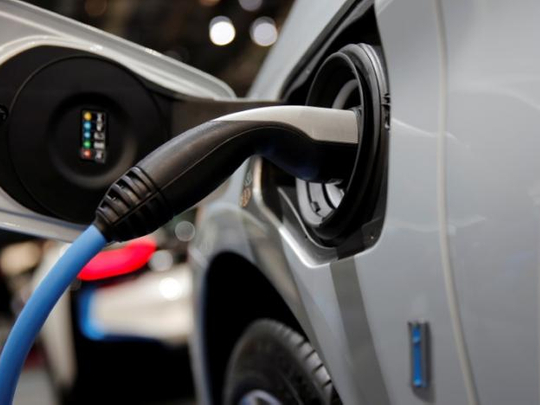
European carmakers are rolling out electric vehicles like the ones on view at the Paris Motor Show to burnish their reputations as technology leaders and to compete with Tesla.
But also because EU regulations don’t leave them much choice.
New emission standards mean Europe will soon see an upsurge in electric offerings, outpacing the US, where the regulatory push has eased under the Trump administration, but still likely lagging China, where the government is mandating more e-cars.
The new rules could increase sales of electrics in Europe from a minuscule 0.6 per cent of the 14.5-million vehicle annual market to the high single digits over the next five or six years.
From about 10 available models there would be several dozen to choose from.
The European Union’s collective effort to cut the output of greenhouse gases also weighs heavily in the automakers’ plans.
They must cut average emissions of CO2 for new cars sold in Europe from the 2015 goal of 130 grams (4.6 ounces) of CO2 per driven kilometre to 95 grams per kilometre in 2021, or pay heavy fines.
Forests emerge as ‘unsung hero’ of climate action
Scientists from around the world called for stepped-up efforts to use forests to keep global warming to the lowest limit agreed by governments in 2015, as a key report on how to meet that goal was published in South Korea.
“Forests really are the unsung hero of our struggle to address climate change,” said Deborah Lawrence, a University of Virginia professor and one of 40 scientists who backed a statement emphasising how the Earth’s climate depends on forests.
The natural processes by which forests suck in and store carbon help reduce levels of planet-warming carbon dioxide in the atmosphere — and forests also underpin key parts of the world’s economy, the scientists said.
Yet humans have let forests become degraded, even as the resulting risks of disaster and the costs of repairing the damage rise, they added.
“We must protect and maintain healthy forests to avoid dangerous climate change and to ensure the world’s forests continue to provide services critical for the well-being of the planet and ourselves,” said the statement, signed by researchers mainly from the United States, Brazil and Europe.












